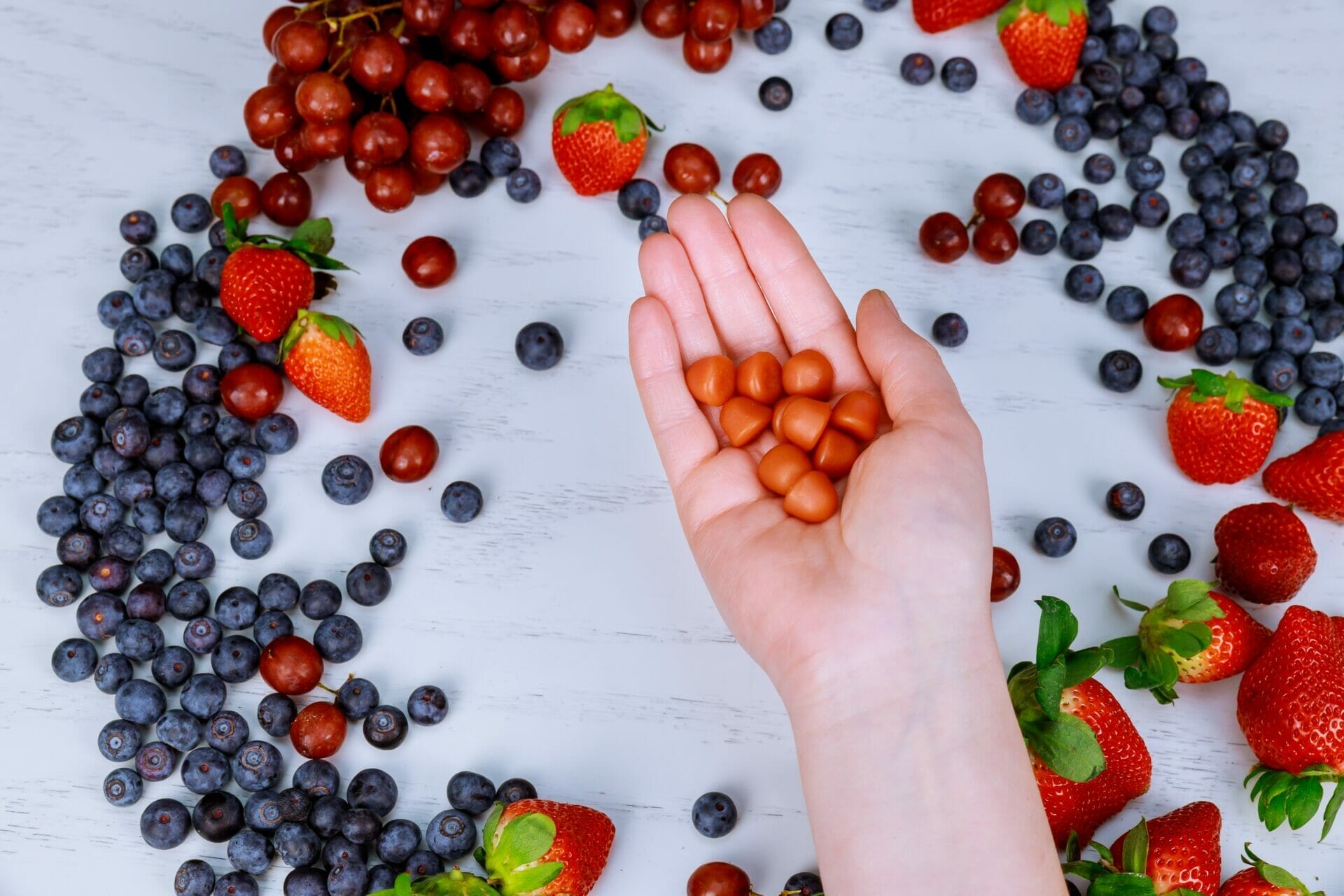Although many of us understand how important it is to consume a variety of vitamins and minerals, it can be challenging to get them all in. For this reason, many people use supplementation to get the best results. We enquired as to the distinction between obtaining these nutrients from diet and supplements from Amanda Langan, RDN.
The most typical dietary supplements (DS) are:
- Minerals and vitamins (such as vitamin C or multivitamins)
- Botanicals (herbs and plant products, such as ginseng) (herbs and plant products, such as ginseng)
- Products made from natural sources (such as omega-3 fatty acids in fish oils)

What are supplements?
Any substance taken orally to supplement the diet to improve health—typically one that isn’t food—is referred to as a supplement. They can be taken as liquids, tablets, capsules, or pills. In Malaysia, dietary supplements are widely accessible in pharmacies, health food stores, supermarkets, online, and via mail. Most people use supplements for physiological purposes.
The most often utilised dietary supplements are vitamin and mineral supplements (VMS), according to the Malaysian Adult Nutrition Survey from 2003. One in four adult Malaysians, according to estimates, use VMS. Our bodies only utilise vitamins and minerals in extremely little levels for a range of metabolic processes. By consuming a balanced and varied diet, most people may obtain all the vitamins and minerals they require.
You should eat to meet most of your nutritional needs, according to the Malaysian Dietary Guidelines (MDG). Health authorities from all around the world advise against supplement use, saying that eating a diverse diet is the best way to get the nourishment we need. It is always preferable to obtain nutrients from foods unless you have been identified as having a vitamin or mineral deficiency and need to replenish that nutrient right away.
Why are whole foods better than supplements (VMS)?
VMS CANNOT mimic all the nutrients and advantages of complete foods, such as fruit and vegetables, hence they CANNOT be used as a substitute for meals.
Compared to supplements, whole foods have three key advantages:
1) Improved diet
Complex whole meals contain a range of the micronutrients your body needs. An orange, for instance, offers beta-carotene, calcium, and other minerals in addition to vitamin C. These additional micronutrients are MISSING in vitamin C supplements.
2) Vital fibre
Dietary fibre is found in whole foods like whole grains, fruits, vegetables, legumes, and whole grains. Most foods high in fibre also provide other crucial nutrients.
When fibre is a part of a healthy diet, it can help prevent diseases:
- Diabetes mellitus type 2 heart disease.
- Constipation can also be treated with it.
3) Defence mechanisms
Along with vitamins and minerals, whole foods also contain additional elements vital to optimum health. For instance, lycopene in tomatoes and carotenoids in carrots are two naturally occurring compounds called phytochemicals that may help PROTECT you against:
Diabetes, heart disease, cancer, and excessive blood pressure.
Antioxidants, which are molecules that lessen the effects of oxidation, a natural process that damages cells and tissues, are also abundant in many fruits and vegetables.
Flavonoids, an antioxidant, are found in a variety of fruits and vegetables, including:
- mangosteen
- grapes
- mangoes
- brinjal
- broccoli
- cabbage
It is normally difficult to consume too much of the majority of vitamins and minerals through foods, while when a nutrient is isolated and taken as a tablet, it is much easier to OVERDOSE, which can be harmful.
The effects of beta-carotene, vitamin E, and folic acid, for example, on heart disease or cancer, have been demonstrated in some clinical trials. HIGH DOSES of single nutrients not only fail to improve health but can make matters worse.

Who needs VMS?
Generally, if you are healthy and eat a wide variety of foods, including ;
- fruits
- vegetables
- whole grains
- legumes
- low-fat dairy products
- lean meats
- fish
Most likely, VMS is not required. All the vitamins and minerals required for optimal health can be obtained from a diet high in a range of whole plant foods that has undergone the least amount of processing.
To meet the recommended quantities of nutrients, VMS may be helpful in specific situations, such as:
- To lower the risk of neural tube defects, pregnant women of childbearing age may need to take folic acid supplements (folate).
- Iron supplements are required for pregnant women.
- Those who adhere to strict vegetarian or vegan diets and consume fish, eggs, and milk may require vitamin B12 supplements.
- People whose eating habits have changed as a result of major sickness and are currently healing.
- Those who are unable to buy nutritious diets.
- The elderly may have diminished senses of taste and smell and a greater need for specific vitamins as a result of chronic illnesses.
- Those who regularly take drugs that reduce nutrient absorption or boost metabolism or nutrient excretion.
If you think you might need to supplement your diet, it’s crucial to speak with a doctor or a nutritionist.
Choosing and using VMS
If you choose to take a vitamin or mineral supplement, you should take the following things into account:
i) Verify the label
- Carefully read all labels.
- The active ingredient or ingredients, the nutrients that are included, the serving size, such as 1 tablet, capsule, packet, or teaspoonful, and the number of nutrients in each serving can all be found on the product label.
ii) Eliminate megadoses
In general, pick a multivitamin-mineral supplement that offers close to 100% of the Daily Value (DV) for each vitamin and mineral rather than one that, for instance, contains 500% of the DV for one vitamin and just 20% of the DV for another.
iii) Examine the expiration dates
- Over time, dietary supplements might lose their effectiveness, particularly in hot, muggy settings.
- If a supplement has no expiration date, do not purchase it.
- Throw away any supplements that have expired.
iv) Watch your diet
Breakfast cereals and beverages are only two examples of foods that are being enhanced with vitamins and minerals. You might be getting more of nutrients than you realise if you also take supplements.
Overdosing on medication can increase your risk of experiencing negative side effects.
For instance, consuming too much iron can harm the liver and other organs and produce nausea and vomiting.


